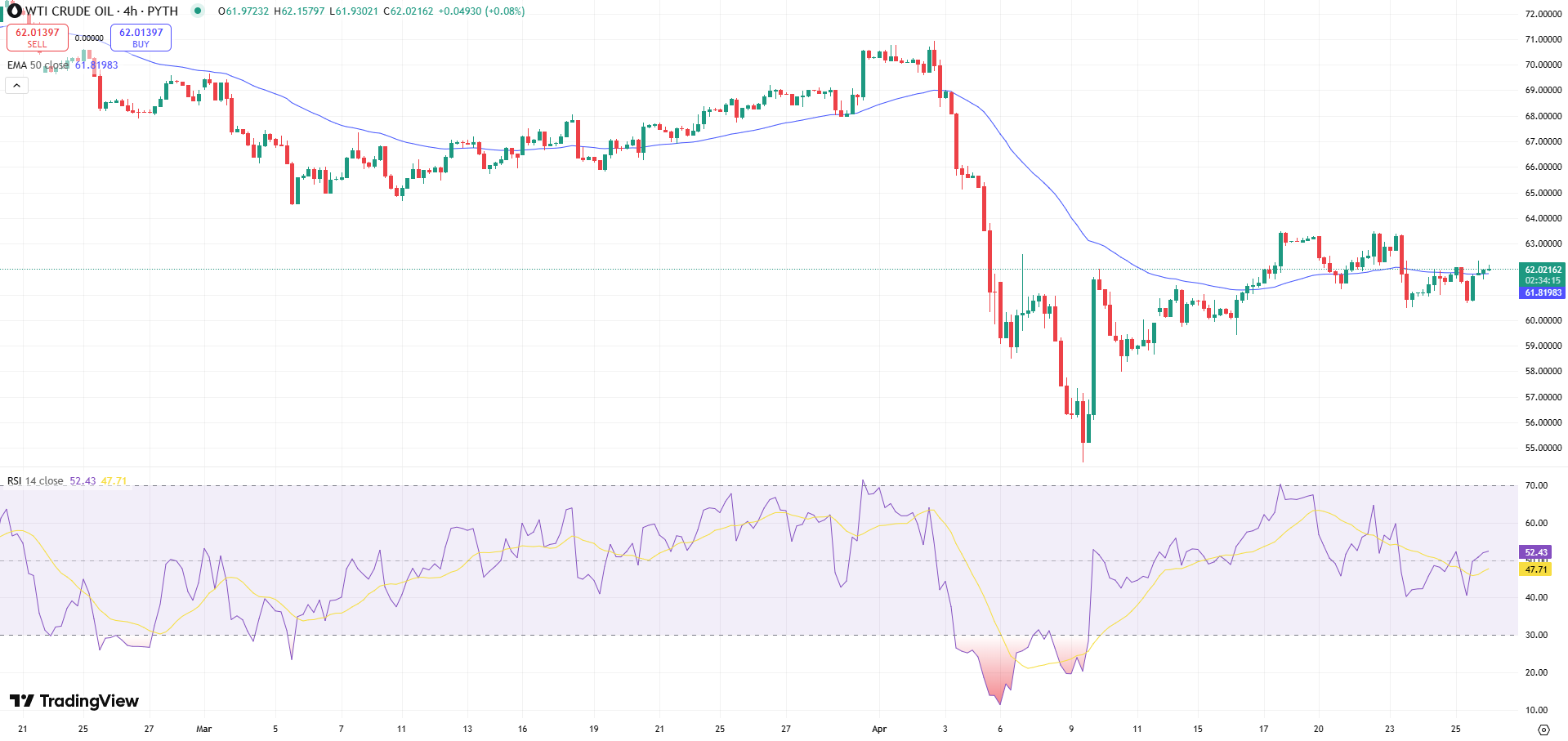Oil prices crept higher in early trading Monday, with Brent crude futures gaining 22 cents to $67.09 a barrel and U.S. West Texas Intermediate (WTI) rising 24 cents to $63.26 by 0429 GMT. Despite the uptick, markets remain clouded by uncertainty surrounding U.S.-China trade negotiations and fears of an OPEC+ supply boost.
Michael McCarthy, CEO of Moomoo Australia, noted that the absence of significant news has led to modest price increases, as traders, positioned short ahead of the May 5 OPEC+ meeting, anticipate an output hike. Expectations for an accelerated production increase have intensified after both Brent and WTI fell by more than 1% last week, driven by oversupply concerns and trade tensions.
Key highlights:
- Brent crude: +0.33% to $67.09
- WTI crude: +0.38% to $63.26
- Last week’s decline: Over 1% for both benchmarks
The oil market’s muted optimism reflects a delicate balance between geopolitical risks and fundamental supply-demand dynamics.
OPEC+ Supply Talks in Focus
Attention now turns to the upcoming OPEC+ meeting, where members are expected to push for a second consecutive monthly increase in production. While rising global inventories have fueled oversupply concerns, OPEC+ leaders face a complex backdrop of uneven global recovery and volatile demand.
Adding to the uncertainty, nuclear negotiations between Iran and the United States in Oman remain ongoing. Iranian Foreign Minister Abbas Araqchi expressed extreme caution regarding the talks’ success, indicating that any progress—or lack thereof—could significantly influence future Iranian oil exports.
Meanwhile, a tragic explosion at Iran’s Bandar Abbas port, the country’s largest, has reportedly killed at least 40 people and injured over 1,200, further straining the nation’s export capacity.
Investors are watching several critical developments:
- OPEC+ meeting on May 5
- Iran-U.S. nuclear negotiations
- Impact of Iran’s port explosion on oil flows
These factors could sharply shift the supply landscape, keeping oil prices sensitive to any geopolitical headlines.
Trade Tensions Cap Market Optimism
Trade relations between the U.S. and China continue to cast a long shadow over oil demand forecasts. Over the weekend, conflicting statements from Washington and Beijing underscored the fragility of ongoing efforts to ease tariff disputes. U.S. Treasury Secretary Scott Bessent contradicted President Trump’s earlier assertions, indicating that no substantial talks were underway.

At the IMF and World Bank Spring Meetings, many participants pointed to unresolved internal conflicts within the U.S. administration regarding its trade strategy, deepening investor skepticism.
Trade-related concerns weighing on oil:
- Uncertainty over U.S.-China negotiations
- Potential tariffs reducing global demand
- Investor hesitation amid mixed signals
As traders weigh supply risks against demand uncertainty, oil prices may continue to see muted, volatile moves in the near term.


